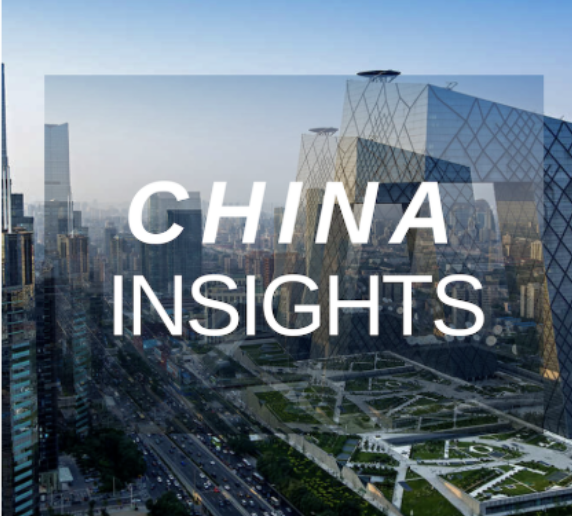Founded in Stockholm, Sweden, in 1970, Kreab is a global strategic communications consultancy with offices in 25 countries, serving over 500 global clients. Kreab advises on communication issues of strategic importance in business, finance, and politics, helping clients solve complex communications challenges and achieve their strategic goals. The Kreab Beijing team is well known for its track record of helping clients manage and strengthen their reputation through services spanning corporate communications, financial communications, public affairs, and social media. Contact Kreab at kchina@kreab.com, follow Kreab on WeChat (ID: KreabChina), or visit Kreab’s website at https://www.kreab.com/beijing.
SwedCham China Insights for the week of November 17 - November 21, 2025

Weekly China Insight
Beijing, 21 November 2025
The Netherlands suspends state control over Nexperia, but disputes remain unresolved
On 20 November, the Dutch government formally suspended its supervisory order over Nexperia, marking the first tangible de-escalation in a protracted geopolitical dispute that has fractured the Chinese-owned chipmaker’s operations. The decision followed two rounds of bilateral talks between Dutch and Chinese officials in Beijing, and came shortly after China’s commerce ministry (MofCom) lifted export restrictions on Nexperia’s civilian-use components. While both sides welcomed the move as a constructive step, Chinese authorities stressed that true resolution requires the Dutch side to fully revoke the order and reverse the court ruling that stripped Nexperia’s Chinese parent company’s management rights.
Despite the suspension, the Dutch Enterprise Chamber’s 7 October ruling remains in effect. Nexperia’s Chinese parent company’s voting rights in Nexperia are still suspended and its CEO Zhang Xuezheng remains barred from his post. Nexperia’s European management, now under interim CEO Stefan Tilger, continues to report severe disruption, accusing Nexperia China of operating outside corporate governance, including setting up unauthorized bank accounts and refusing wafer payments.
While the Dutch government’s suspension eases immediate political tensions, the Nexperia crisis remains deeply entrenched in legal and operational limbo. The separation of Nexperia’s European and Chinese branches and unresolved leadership conflict threaten the chip supply chains vital to the global automotive and electronics sectors.
China ramps up economic pressure on Japan over Prime Minister’s Taiwan remarks
In the past week, China escalated its retaliation against Japan following Japanese Prime Minister Sanae Takaichi’s suggestion that Tokyo could respond militarily if China used force against Taiwan – a break from Japan’s traditional strategic ambiguity. In the weeks since, Beijing has launched a wide-ranging campaign aimed at imposing both reputational and economic costs on Japan, including public rebukes, consumer-driven boycotts, travel advisories, and implicit trade threats.
At the diplomatic level, China summoned Japan’s ambassador and publicly demanded a retraction of Takaichi’s remarks. When Japan refused, Beijing amplified its rhetoric, accusing Tokyo of “challenging the post-war order” and “reviving militarism.” On 20 November, the Chinese foreign ministry declared that conditions were no longer suitable to hold scheduled trilateral meetings with Japan and South Korea, citing Tokyo’s “extremely erroneous” comments as having damaged the basis for cooperation.
Economically, China targeted Japan’s tourism and seafood sectors. A travel advisory urged Chinese citizens to avoid visiting Japan, threatening a major blow to Japanese tourism, which relies heavily on Chinese visitors. Several Chinese airlines offered ticket refunds for Japan-bound flights, and two Japanese films set for release in China were postponed. The Chinese education ministry warned students about safety in Japan, and Beijing has reportedly re-imposed a ban on Japanese seafood imports, citing missing technical documentation.
In addition, China conducted coast guard patrols through waters around the Japanese-administered, disputed Senkaku/Diaoyu Islands, and sent three PLA Navy warships through the Osumi Strait near Japan's Kyushu and Ryukyu Islands.
China’s response to Japanese Prime Minister’s remarks suggesting Japan would intervene in what Beijing sees as its internal affairs, reflects a coordinated strategy to isolate and intimidate Tokyo by fusing economic leverage, nationalist sentiment, and historical memory. Through these actions, Beijing is demonstrating that public Taiwan-related statements by foreign leaders that deviate from the one-China policy can trigger swift reputational and commercial consequences.
China-EU cooperation summit in Chengdu highlights innovation, green growth, and trade resilience
On 20 November, the 18th Europe-China Business and Technology Cooperation Fair kicked off in Chengdu, bringing together over 600 representatives from more than countries, including government officials, business leaders, diplomats, and scholars. The fair emphasized deeper bilateral ties across emerging sectors such as green energy, biopharma, digital culture, and intelligent robotics. The event featured five parallel industry matchmaking sessions and upgraded one-on-one pairing mechanisms aimed at generating new deals.
During the vent, vice chairman of China Council for the Promotion of International Trade (CCPIT) Liu Jiannan underscored China’s commitment to maintaining open supply chains and promoting digital and innovation cooperation. European representatives echoed support for further alignment in technology, connectivity, and green transitions, with Spain’s Navarre region extending direct invitations to Chinese firms to support its electric vehicle push.
The event reaffirmed the strategic depth of China-EU economic ties, with a growing pivot toward high-tech collaboration and sustainability. These areas could serve as buffers amid geopolitical uncertainty and offer fresh channels for cooperation beyond traditional trade.
Double 11 sets new records as instant retail and AI pricing reshape China’s e-commerce battlefield
On 11 November, China’s major e-commerce platforms wrapped up the 2025 “Double 11” shopping festival with record-breaking sales across the board. Tmall reported its strongest full-cycle Double 11 growth in four years, with nearly 600 brands surpassing RMB 100 million in sales and over 13,000 brands more than quintupling their sales y/y. JD.com saw its transaction volume reach a new high, with order volume up nearly 60% y/y. Instant retail surged as a new growth driver, with Tmall's on-demand retail orders up 198% from September and Meituan Flash Sales posting record highs in transaction volume, users, and per capita spending.
The promotional landscape evolved too, with AI-driven precision pricing becoming more prominent. Tmall utilized AI tools to optimize coupon distribution, increasing conversion rates by 15% y/y.
The shopping festival’s continued growth marks a shift from pure volume expansion to strategic competition centered on AI pricing, instant delivery, and service differentiation
